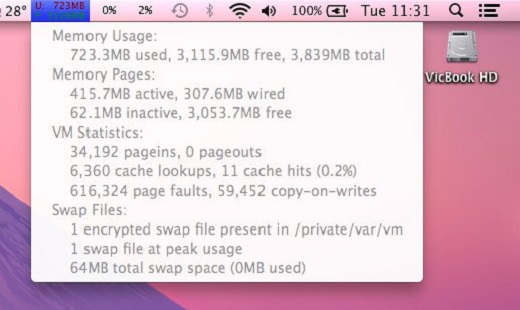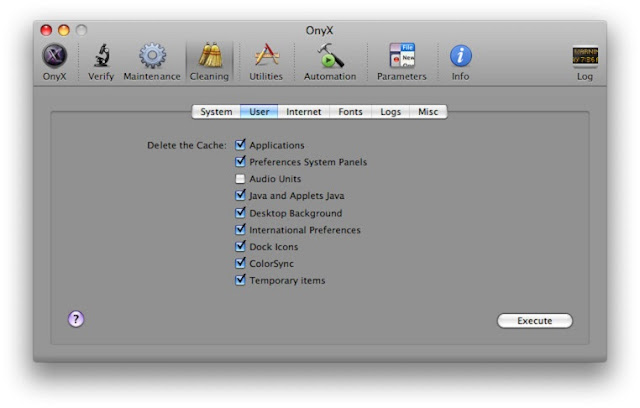With
general clear outs your Mac can get fundamentally speedier.
general clear outs your Mac can get fundamentally speedier.
To restart
or not to restart
Couple
of parts of Macs cause a larger number of contentions than the one about what
to do toward the day’s end: close down or rest? The old argument of leaving a
PC on however much as could be expected depended on the wear and tear of
restarting the hard drive. Suffice to say that the restart contention lays on
more than simply this.
of parts of Macs cause a larger number of contentions than the one about what
to do toward the day’s end: close down or rest? The old argument of leaving a
PC on however much as could be expected depended on the wear and tear of
restarting the hard drive. Suffice to say that the restart contention lays on
more than simply this.
The
fundamental point of interest of sleeping your Mac is to have able to proceed
where you cleared out off rapidly. Yet, the inconveniences might exceed this
particularly in case you’re minimal on RAM. Macintosh OS X utilizes swap files,
spaces on your hard plate that permit your Mac to imagine it has more RAM than
it really has, for virtual memory. Once the quantity of swap records surpasses
five or somewhere in the vicinity, your Mac begins to back off. Time to reboot.
Contingent upon your utilization and RAM, this could be a few times each day.
MenuMeters (free, www.ragingmenace.com) demonstrates the quantity of swap
records alongside free/utilized memory and other helpful information. Rebooting
additionally clears all system temp, swap and store documents.
fundamental point of interest of sleeping your Mac is to have able to proceed
where you cleared out off rapidly. Yet, the inconveniences might exceed this
particularly in case you’re minimal on RAM. Macintosh OS X utilizes swap files,
spaces on your hard plate that permit your Mac to imagine it has more RAM than
it really has, for virtual memory. Once the quantity of swap records surpasses
five or somewhere in the vicinity, your Mac begins to back off. Time to reboot.
Contingent upon your utilization and RAM, this could be a few times each day.
MenuMeters (free, www.ragingmenace.com) demonstrates the quantity of swap
records alongside free/utilized memory and other helpful information. Rebooting
additionally clears all system temp, swap and store documents.
On
the off chance that you run support or reinforcement scripts during the
evening, your Mac can simply be set to close down after these.
the off chance that you run support or reinforcement scripts during the
evening, your Mac can simply be set to close down after these.
Moment
input – use MenuMeters to see memory, processor and hard drive utilization
input – use MenuMeters to see memory, processor and hard drive utilization
Discharging stores
Macintoshes
utilize various caches, little records held on the hard drive with the
expectation of re-utilizing them. In that capacity, they expand the execution
of your Mac. Some are controlled by the framework, others by individual
applications. Case in point, a web browser will store site pages so that when a
site is returned to, the pages can be perused from the hard drive as opposed to
re-downloaded.
utilize various caches, little records held on the hard drive with the
expectation of re-utilizing them. In that capacity, they expand the execution
of your Mac. Some are controlled by the framework, others by individual
applications. Case in point, a web browser will store site pages so that when a
site is returned to, the pages can be perused from the hard drive as opposed to
re-downloaded.
The
issue is that not all applications are very much carried on around there.
Observe your client reserves by hitting Command+Shift+G from your desktop to
raise Go To Folder and afterward writing ~/Library/Caches/. Try not to be
amazed if various gigabytes are dwelling here. The greatest ones are prone to
be for your web browser and any semblance of Google Earth, iTunes and Spotify.
As client reserves are remade when required, you can securely erase these,
particularly for applications that are no more utilized. Safari, Firefox and
iTunes all permit you to clear stores straightforwardly inside of the
applications.
issue is that not all applications are very much carried on around there.
Observe your client reserves by hitting Command+Shift+G from your desktop to
raise Go To Folder and afterward writing ~/Library/Caches/. Try not to be
amazed if various gigabytes are dwelling here. The greatest ones are prone to
be for your web browser and any semblance of Google Earth, iTunes and Spotify.
As client reserves are remade when required, you can securely erase these,
particularly for applications that are no more utilized. Safari, Firefox and
iTunes all permit you to clear stores straightforwardly inside of the
applications.
There
are various valuable utilities here including OnyX (free, www.titanium.free.fr)
and Mountain Lion Cache Cleaner ($9.99, www.northernsoftworks.com). While both
do significantly more than simply erasing caches, they will permit you to hold
your user caches under control.
are various valuable utilities here including OnyX (free, www.titanium.free.fr)
and Mountain Lion Cache Cleaner ($9.99, www.northernsoftworks.com). While both
do significantly more than simply erasing caches, they will permit you to hold
your user caches under control.
OnyX
has a large group of valuable components including cache control
has a large group of valuable components including cache control
Cleaning up your hard drive
Some
portion of your Mac’s performance Cleaning on upon vacant hard drive space. It
should have able to compose and read its swap records and adjacent free space
makes a difference. This raises the prickly issue of defragmenting. With the
more established Mac OS, this was easy to refute yet Mac OS X however has its
own particular implicit protections that keep records from getting to be
divided in any case. This is likely the motivation behind why there isn’t a
defrag choice in Disk Utility. Be that as it may, for these shields to work,
you require no less than ten percent of your circle drive unfilled. Supplanting
your hard circle with a bigger limit model is one answer however it will, in
any case, top off inevitably. The answer is to offload some of your bigger
files.
portion of your Mac’s performance Cleaning on upon vacant hard drive space. It
should have able to compose and read its swap records and adjacent free space
makes a difference. This raises the prickly issue of defragmenting. With the
more established Mac OS, this was easy to refute yet Mac OS X however has its
own particular implicit protections that keep records from getting to be
divided in any case. This is likely the motivation behind why there isn’t a
defrag choice in Disk Utility. Be that as it may, for these shields to work,
you require no less than ten percent of your circle drive unfilled. Supplanting
your hard circle with a bigger limit model is one answer however it will, in
any case, top off inevitably. The answer is to offload some of your bigger
files.
Your
hard drive has various enormous documents and folders. These incorporate email
documents and backups, old renditions of applications that you no more need,
and photographs. In any case, the single greatest organizer is liable to be
your iTunes library, particularly on the off chance that you have films and
portable applications and in addition music. Use WhatSize ($12.99,
whatsizemac.com) or OmniDiskSweeper (free, www.omnigroup.com) to see your plate
use.
hard drive has various enormous documents and folders. These incorporate email
documents and backups, old renditions of applications that you no more need,
and photographs. In any case, the single greatest organizer is liable to be
your iTunes library, particularly on the off chance that you have films and
portable applications and in addition music. Use WhatSize ($12.99,
whatsizemac.com) or OmniDiskSweeper (free, www.omnigroup.com) to see your plate
use.
Free
up disk space by offloading large documents to an outer drive. This
incorporates your iTunes library which can be relinked by means of iTunes’
inclinations/propelled tab.
up disk space by offloading large documents to an outer drive. This
incorporates your iTunes library which can be relinked by means of iTunes’
inclinations/propelled tab.

